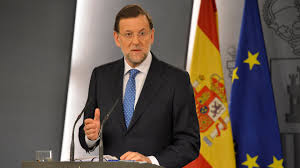Within the current international framework, many countries have understood the importance of promoting their national image abroad. This happens basically because enjoying widespread endorsement means also to be able to acquire a certain level of importance, while managing to persuade the international audience thanks to the country own economic, political and cultural potential.
In Europe, Spain is explicitly starting to work towards this direction: indeed, the degeneration of Spanish politics and economy that invested the country during last years had many negative consequences. Crisis destroyed millions of jobs, ravaged the public finances and forced thousands of companies out of business. But government warns that the crisis has also caused lasting damage to that most intangible of economic assets: Spain’s national brand.
The erosion of Spain’s international reputation appears to be focused more and more on the rise of common stereotypes. By fostering its foreign policy, Rajoy’s government is trying to regain consistence through both public diplomacy and nation branding strategies, in order to “build the world from Spain” (construir el mundo desde España.). What is interesting is the new approach the government is giving to the project, says Fabrizia Settembrino, since the initiative had to be implemented in line with new technologies and communication strategies.
According to your researches, how would you define the project “Marca España”?
It is an initiative promoted by the current Spanish government. The first idea was born in 2003, but it was officially launched three years ago. The aim is to orchestrate the actions carried by public and private entities regarding the national brand promotion. Hence, it is fundamental to transmit a good image of the country and especially to adopt incisive and adequate communication strategies. The promotion of “Marca España” exceeds the marketing sphere and touches directly the most on-key questions of Spanish policy. It must be conceived as a “project of everyone” (empresa de todos), where many different actors are included. It is a “national issue” (asunto de estado), to the extent that the state must promote a good “brand image” (imagen de marca), that ends up being the “true reflection” of the country reality.
How is Rajoy implementing this strategy?
First of all, through the Red de las Casas, a fundamental reference point for Spanish representation abroad. The Six “Casas” (Houses) like Casa África, Casa de Ámerica, Casa Árabe, Casa Asia, Casa Mediterraneo and Centro Sefarad-Israel are designed to encourage the intercultural dialogue and to foster long-term relations between Spain and other areas of the world. This is of course the common and traditional way to activate foreign policy.
But this time something different happens, because “digiplomacy” started to matter. Web tools are already part of the diplomatic world, as they became determinant in order to pursue foreign policy objectives. Strong influence capacity, cross-cutting information spreading, speed and flexibility are attractive patterns that can help tackling demanding aims.
Do you think digital diplomacy will play an important role for Spanish current foreign policy?
It could. Radical changes accelerated the shifting from the traditional diplomatic communication, to a new one where users and citizens have direct involvement. And it is all happening at a global level. The modern way of communicating totally loses sight of the old one where secrecy, discretion and equilibrium where key words. Today it is necessary to be “updated” if governments want to compete within the international arena. Indeed, the relevance of Internet within country branding strategies has been widely supported also by the promotors of Marca España project.
Any examples?
The ME communication campaign was promoted by the Agencia EFE and RTVE through the words “Marca España: una ventana abierta en el mundo”. The online platform wants people to develop their “online voice”, supports nation branding ideas, interacts with different parts of the society and highlights innovations, entrepreneurship, hoping for a stronger dialogue between institutions and citizens. The Moncloa itself is now using social networks more than ever and what is more, politicians such as Rajoy try to guarantee on online presence thanks to facebook profiles, fan pages, twitting and blogging. It may sound strange especially to older citizens, but this is what diplomacy and politics 3.0 will look like.
Is ME being useful?
Yes, according to perceptions. A good country branding should be favourable to tourism and economy and ME Barometer shows that an equilibrium has been reached, but there is still a defeatist attitude from Spanish citizens, who conceive the project as an action to replace the “nation” with a “brand”.
Perceptions also show how Mariano Rajoy’s popularity is being downsized by current events. Given the lack of support from citizens, to what extent ME is a revolutionary policy?
I don’t think the word “revolutionary” should be used. Regardless Rajoy having ensured strong synergies between public diplomacy and nation branding, it must be said that a lot of defaillances are ruining the whole picture. Many commenters would agree with me by saying that the barycentre of Spanish foreign policy seems to remain oriented just towards the Marca España initiative, tearing apart the real problems. A consistent part of Spanish society argues that the real “Marca Espana” keeps on being “unemployment and low salaries”. As Elvira Lindo said, writing for El Pais:
“The Marca España, that thing that was created in a night of passion between a political adviser and a marketing consultant”…“As they say in marketing: one cannot sell what one does not believe in”.
***
Fabrizia Settembrino is a brilliant graduated in International Relations and Diplomacy at University of Padua. She recently carried out a specific research about digital diplomacy and Spanish country branding with prof. Carla Padovani, having participated to several other projects promoted by the professor. She is passionate about Spanish politics, writing two final dissertations about Spanish government-related topics. She studied in Valencia, while working for Consulado General de Uruguay She recently joined a social project in Cordoba.

